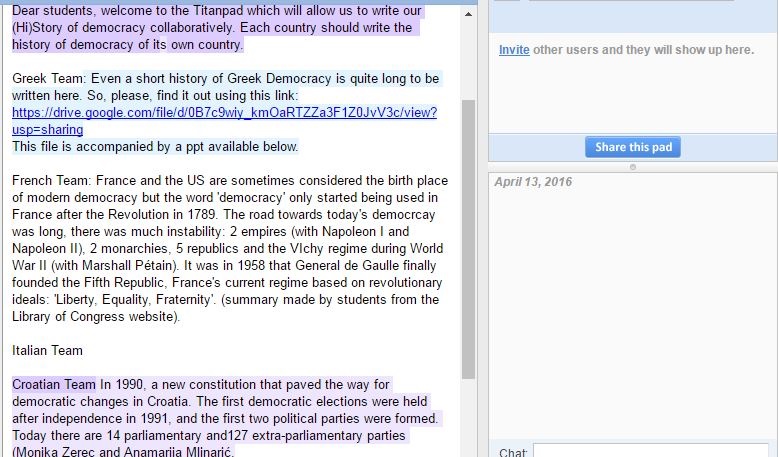Working in teams seems the hardest but most amusing part of every project.
The following video is a result of teams work of School of Midwifery, Croatia, Lycée Jean Jaurès, France and High School of Cryshoupolis, Greece
https://docs.google.com/presentation/d/1Wh6WihJHGtQtDgvY_RBJhHd8TVVm67yuWtpYn6O-bb8/edit#slide=id.p
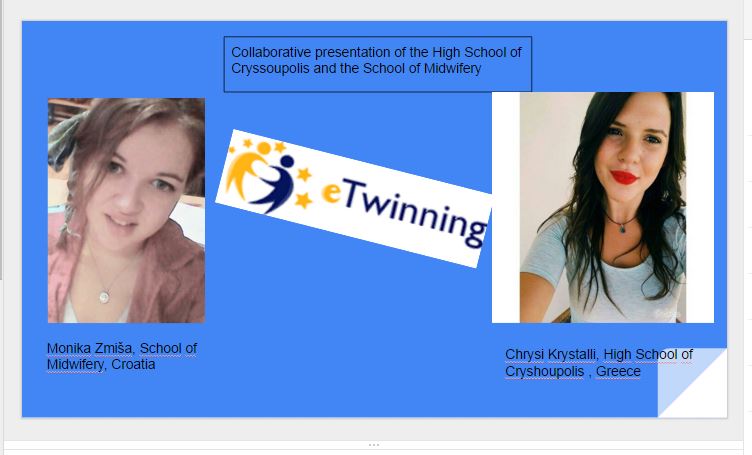
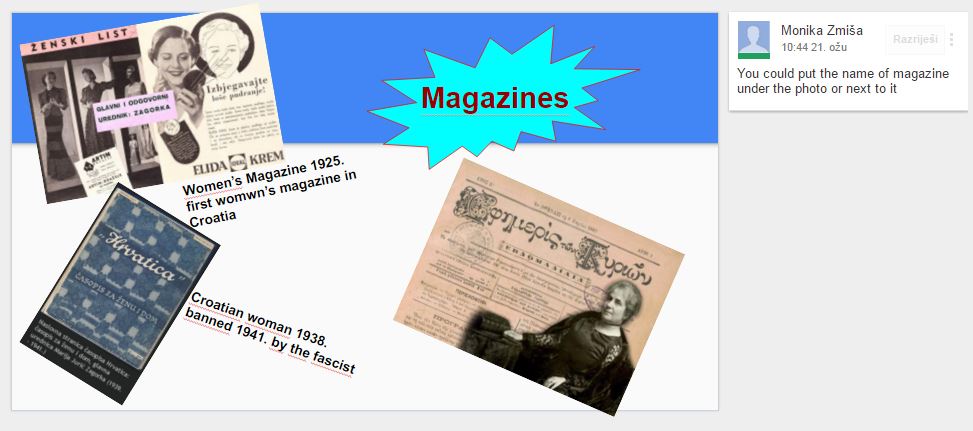
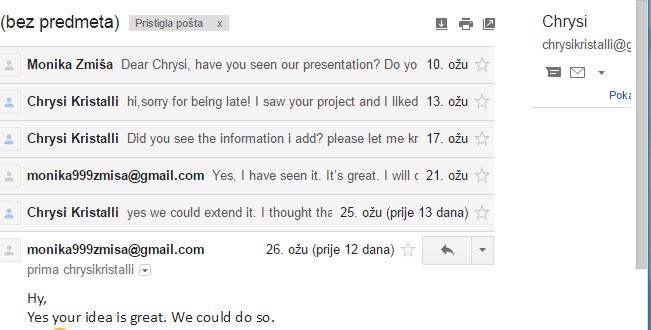
Equality of chances at school
https://docs.google.com/document/d/1hxIAL3C4k83VKC6nVfRoBdIkyQ8dfzaEtEFewSdXjZc/edit?ts=5720a80f
Students Monika Zerec (Croatia), Katerina Takou (Greece), Amélie Maurel and Anne Laure Mallet (France) worked together on an article about Equalitiy of chances at school.
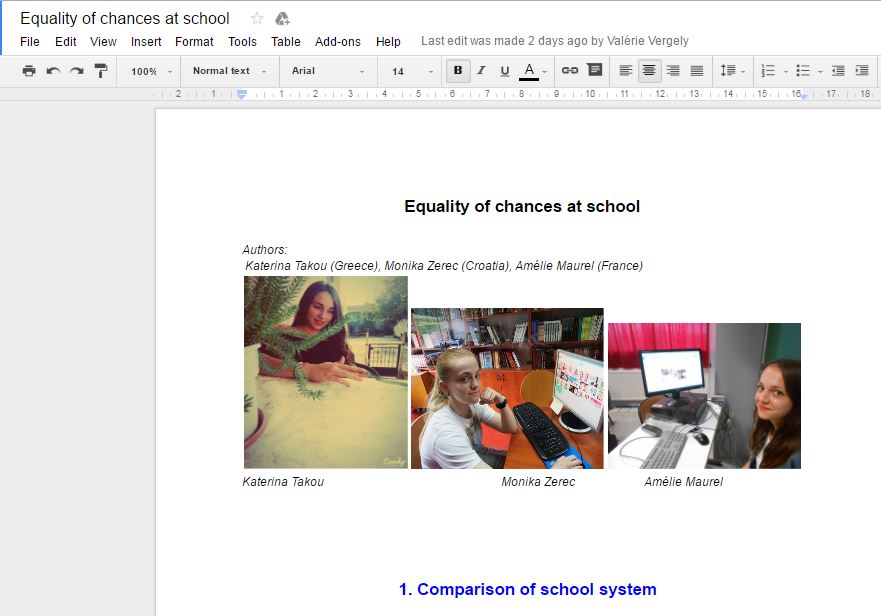
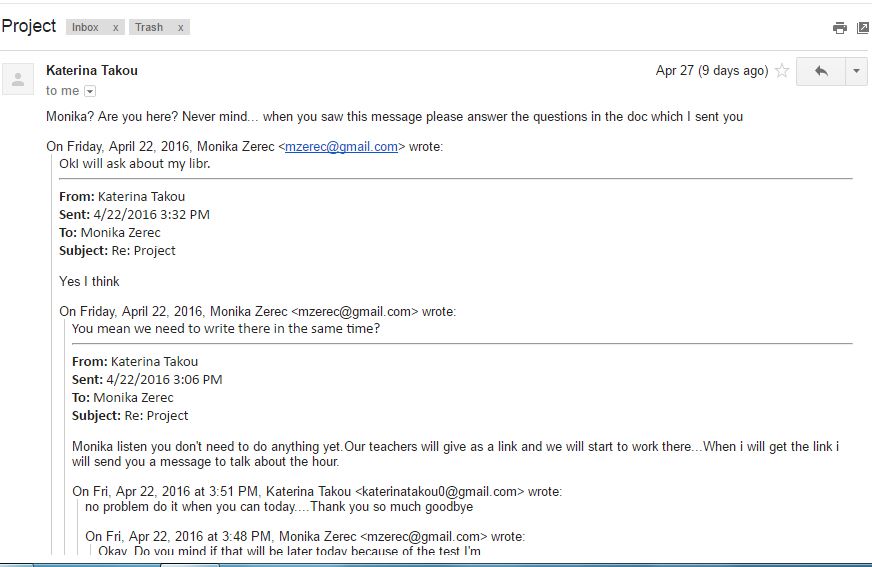
Working together on questions for the videoconference
https://docs.google.com/document/d/12cRMFQrfWepUqmuprahh4MFpYERefPdp09oDQd3Cq6M/edit
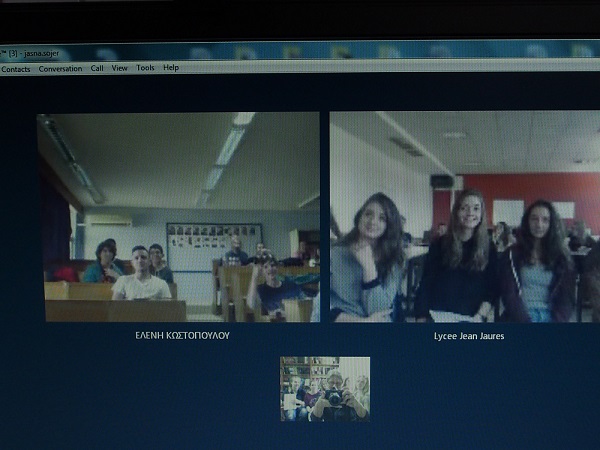
VIDEOCONFERENCE
Thursday 7th April 11h -12h
France: Black
Croatia: red
Greece: blue
Italy: green
Questions you may want to ask your partners
About the attacks in Belgium and terrorism in general
FRANCE
1.What do you think of the terrorist attacks in Belgium?3.
2.Did you hear more about Paris or Belgium on your TV channels?
GREECE
1. Do you think the refugees coming from Syria have any connection with the terrorist attacks in Paris and Brussels?
2. What were your feelings toward refugees before and after Paris attacks?
CROATIA
1. 2.Are you afraid of terrorist attacks?
5. What countries do you find safe for traveling in these days?
About migrant crisis and refugees
CROATIA
1. We know that lots of refugees come to Greece, Italy and France. How many of them stay or ask for asylum in your country?
2. How long do they stay before proceeding further?
FRANCE
1. Are the children included in any kind of education – in schools, camps...? Do you have any in your school?
2. What will be your personal feeling of having refugees at school. Will you be ready to help? In which way?
GREECE
1. Do you have refugees in your country?
2. What have you done for them?
About the place of women in society
FRANCE
1. Are women paid the same salary with men for the same job in your country?
Are women and men equal in your country?
2. Are there quotas in the government or at universities?
GREECE
3. Who does the cooking at your home?
4. Who does the household chores at your home?
CROATIA
5. Does women still has to fight for their rights in these days?
6. Does women in politics do enough for the position of the women in your county?
About our project and the documents/pictures/videos we exchanged
GREECE
1. Do you like taking part in projects like this one? Do you find that a project like this one is useful for you?
2. What do you think of the topics we worked on the Etwinning platform?
CROATIA
1.What was your favorite topic?
2. What do you think about Living Newspaper as learning method?
FRANCE
1.Did you see our picture of Christmas wishes and do you know what the background of the picture is??
2. What subject would you like to talk about next?
.
About the school system in their country
FRANCE
1. What time do you start school in the morning, and what time do you finish?
2. Do you have to wear a uniform,
3. When do you have your holidays?
4. Which languages do you learn at school?
5. Do you travel with your school?
CROATIA
6. How many holidays you have in Greece? In France? Italy?
7. Are you satisfied with education system in your country? What would you like to be changed?
GREECE
8. How many students are there in your classroom?
9. Do you find your classes boring?
(Hi)Story of democracy
